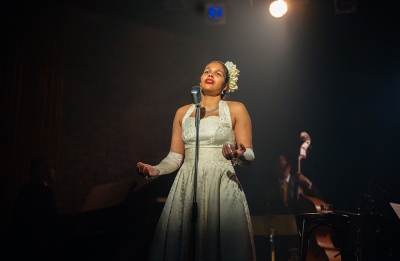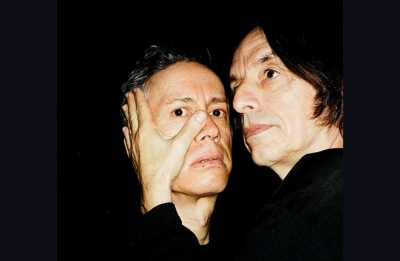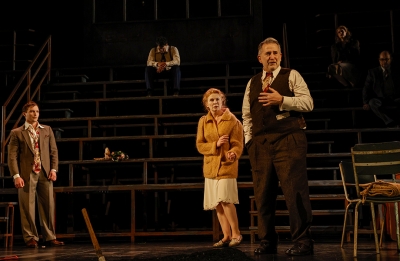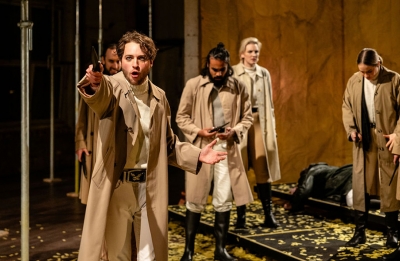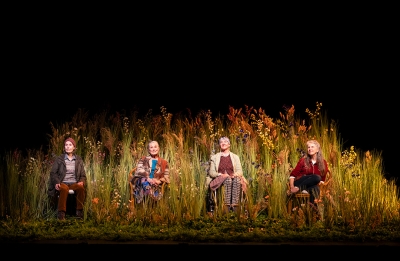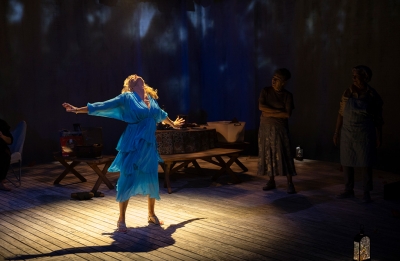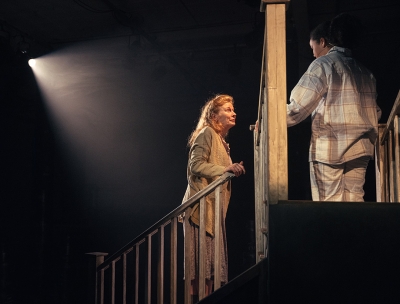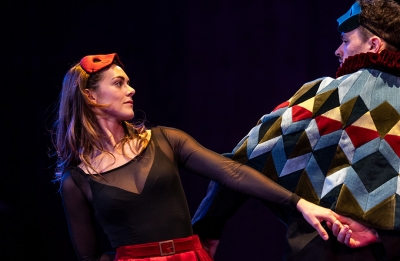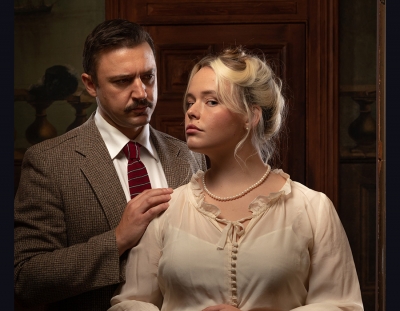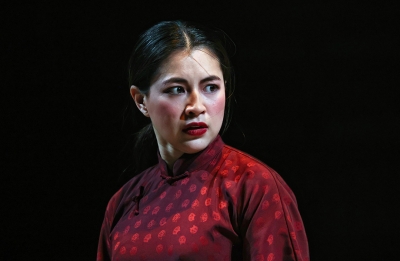Theatre
What makes the physical and mental disintegration of famous performers so compulsively fascinating to so many people? The breakdown of a talented artist, usually female, brought down by her insecurities and the betrayal and abandonment of those close to her, usually male, is a trope that is endlessly trotted out to and repeatedly lapped up by audiences.
... (read more)The French-Romanian playwright Eugène Ionesco’s ambivalent attitude towards the power, even the usefulness, of language played out throughout his career. Speaking of Jean-Paul Sartre, Ionesco (1909–94) said that he ‘wrote an important book called Words and there he noticed that he had talked too much all his life. That words are not saying anything.’ Later, Ionesco claimed ‘[w]ords no longer demonstrate anything. Words just chatter. Words are escapism. Words prevent the utterance of silence.’
... (read more)In his survey of the notebook Arthur Miller kept while writing Death of a Salesman, John Lahr, in Arthur Miller: American witness (2022), relates that early in its composition Miller considered calling the play ‘The Inside of His Head’. Correspondingly, Miller envisioned the stage ‘designed in the shape of a head, with the action taking place inside it’.
... (read more)In many ways, William Shakespeare’s Julius Caesar (almost certainly 1599) is a director’s rather than an actor’s play. While there have been brilliant performances associated with it – from Marlon Brando and John Gielgud to Ben Whishaw and our own Robyn Nevin – it is really the directors who make sense of it on stage, and have moulded its politics to suit the times. John Philip Kemble and William Charles Macready defined the play in the nineteenth century, with elaborately realistic sets and massive crowds, emphasising Brutus as a revolutionary figure.
... (read more)Escaped Alone ★★★★★ and What If If Only ★★★1/2
Voices in Caryl Churchill’s plays swell and ripple and surge, but they are an unquiet river in whose streambed is hidden the unspeakable, the incomprehensible. Like Samuel Beckett and Harold Pinter – the two playwrights with whom she is most often compared – Churchill is a doyenne of the unspoken, silences manifesting as much through their presence as their absence.
... (read more)The Weekend is a Trojan horse of a play. In setting and humour, the production shares a family resemblance to many of David Williamson’s comedies of middle-class manners. The scene is a beach house on the Central Coast of New South Wales over Christmas. Our characters are three white women of seeming privilege in their early seventies who throw around one-liners about sourdough bread and poke fun at the excesses of enfant terrible male theatre directors (think Simon Stone or Benedict Andrews). The women even dance, Big Chill style, to a Carole King song as they reminisce about their youth.
... (read more)Now an octogenarian, and with more than thirty plays to her name, Caryl Churchill must be the English-speaking theatre’s nearest equivalent to a rock star of a certain age. It’s no exaggeration to say that without her plays – which, like Samuel Beckett’s, have become increasingly spare and crystalline over time, some running to as little as ten minutes – it would be hard to imagine the existence of whole generations of British playwrights, from Martin Crimp and Mark Ravenhill, to Alistair McDowell and Lucy Kirkwood.
... (read more)Bell Shakespeare’s latest production of Shakespeare’s Romeo and Juliet (directed by Peter Evans) is punctuated by stand-out performances: Lucy Bell, as the Nurse to Juliet, steals the show early, with her accounts of Juliet’s birth and growing up; she lends warmth and a sense of time and place that allows this loving and loveable character to shine...
... (read more)Is it time for Joyce’s Exiles to come in from the cold? Joyce’s only extant play has long been marginal within his oeuvre, scantly loved even by Joyce enthusiasts, and seldom produced for stage. Bloomsday in Melbourne, which has been making live theatrical adaptations of James Joyce’s prose work for some thirty years, has only got round to putting it on now, the first ever production in Victoria.
... (read more)The Poison of Polygamy originally appeared serially in Melbourne’s Chinese Times in 1909–10. Wong Shee Ping’s novella is a kind of Cantonese Rake’s Progress by way of Rider Haggard, relating the wanderings and misadventures of a man sojourning in Australia, and the yearnings of the wife he leaves behind at home.
... (read more)

